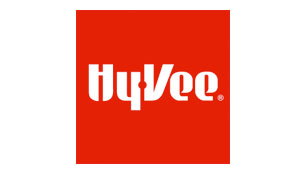Public Companies: Dice Holdings, Inc.

PERRY BEEMAN Jan 30, 2015 | 12:00 pm
3 min read time
784 wordsBusiness Record Insider, Innovation and EntrepreneurshipHeadquarters: New York, N.Y.
Website: www.diceholdingsinc.com
Ticker symbol: DHX
Employees: 830
New York, N.Y.-based Dice Holdings Inc., which has major operations in Urbandale, was founded in 1990. The remaining offices are in Denver; London; Santa Clara, Calif.; Houston; Vancouver; Amsterdam; Aberdeen, Scotland; Frankfurt; Brussells; Hong Kong; Shanghai; and Dubai. Company revenue nearly doubled between 2009 and 2013, to $213 million. However, net income ranged between $13.49 million to $38.09 million in that period, rising and falling.
The company has steadily expanded its job-board offerings, in technical fields that serve health care, hospitality, trucking, finance and other careers.
Mike Durney, 52, a 15-year veteran of the company, is chief executive officer. He is guiding a new effort by the company to use social media and public documents to tell employers much more about job candidates and how they are wired. Durney comes to Des Moines every six weeks.
Q & A with Mike Durney, CEO, dice holdings inc.
Age: 52
Education: Bachelor’s degree, accounting, State University of New York-Oswego
Hometown: Rockville Centre, N.Y.
Family: Wife, Joanne, two children.
Dice Holdings Inc. has substantial operations in Urbandale. How is your company organized?
Our headquarters are in New York. We have 21 offices, with a total of 830 employees. The largest is in Urbandale, with 240. Urbandale is the heartbeat of the infrastructure. We run a variety of job boards focused on technical careers and some have industry content, too. Urbandale has the techs, finance and accounting and human resources, for example.
Among your products is your namesake job board, Dice.com. What are your other offerings?
We have eFinancialCareers, Rigzone (trucking), HealtheCareers (health), and Hcareers (hospitality). We also have BioSpace (biotech and pharmaceuticals), ClearanceJobs (security clearance required), Slashdot and SourceForge (tech).
What separates your job sites from the general ones, such as CareerBuilder or Monster?
Our sites are focused on technical jobs. If you search for Java on one of the other sites, you could get tech or you could get coffee. On Dice sites, it would just be the operating system. That also applies to ‘Python’ (a computer programming language) and ‘Pig’ (high-level scripting language).
Your company is growing and adding sites. What is in your five-year plan?
We will keep defining what we do. We have added open web service. That means we can get public information from 130 sources, and offer aggregate profiles of people.
How does that change things?
Now recruiters can find people and don’t rely on whether they come to a job site. This also gets the passive people, the ones that aren’t even looking for a job. We launched that concept on Dice in December 2013, and added it to a couple of other sites this year. We will work on the rest through 2015.
What is the biggest advantage to that approach?
We are helping recruiters and companies be more efficient. And we help employees, too. We’re giving you an opportunity to hear about roles that maybe are a step above where you are.
What are the next steps with Open Web?
We’re looking for identification signals of people likely to want to change. That would be Tweets or activity on various sites. It could be their employment anniversary. We might look at Github. There may be a worker in telecom who may be creating games on the side and who could be interested in pursuing that as a career.
How does looking at what a person does as a hobby, or on social media, help?
The biggest mistake is not the person without the skill set to do the job, but the person who doesn’t fit in. That is the biggest issue to tackle. We can look at online behaviors. It’s kind of like online data. Or perhaps a simpler Myers-Briggs (personality test).
What would you be able to tell potential employers about a candidate?
We can look at openness, sociability, positivity,
As we move into this next couple of years, what elements of the job market will inform what you do?
Recruiting can be difficult. Tech is so strong right now. We see more and more counteroffers, and more vacation and other perks. People want much more, but they are looking for work-life balance, too. We firmly believe that over time more people are going to become free agents. Portable health care makes that easier. People may work more, or make the same and work less.
In addition, we will become more international. Right now, 25 percent of our revenue comes from outside North America. That will be 25 to 50 percent in the future.
What challenges do you face in reaching your goals?
Recruitment is an incredibly competitive space. It also is very profitable. Companies struggle to attract and nurture talent.









